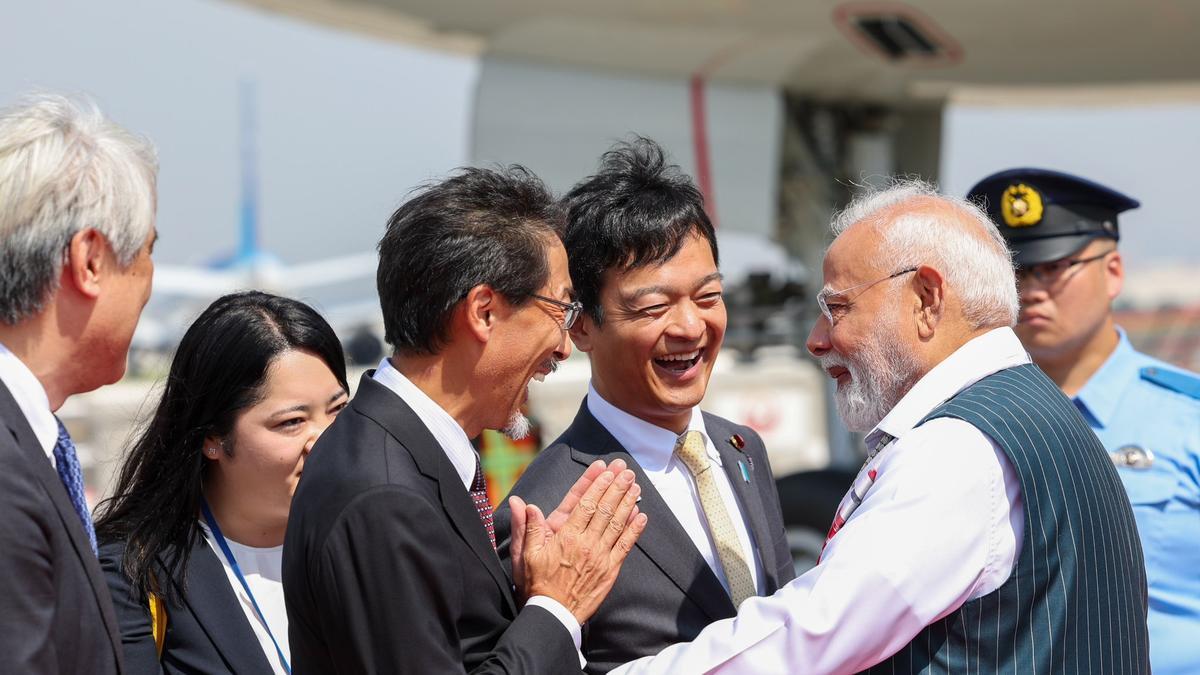ARTICLE AD BOX
The Supreme Court Constitution bench hearing the reference made by President Droupadi Murmu said Tuesday that the Centre’s argument that the Governor can withhold a Bill at the very outset and that the Bill would then lapse, would mean that they can also withhold Money Bills, which cannot be done in the normal course.
The state of Maharashtra, meanwhile, told the bench – comprising Chief Justice of India B R Gavai and Justices Surya Kant, Vikram Nath, P S Narasimha, and A S Chandurkar – that “the notion that assent must follow once a law is made by the Assembly, is wrong.”
President Murmu had made the reference in the wake of the decision by a two-judge bench of the court to fix time limits for the President and governors to act on Bills sent by state Assemblies.
On Tuesday, Justice Narasimha referred to the Centre’s submission that the Governor can independently withhold a Bill, without returning it to the Assembly and then the Bill would then lapse. “When you independently exercise the power of withholding…it is a little problematic. Because…then even a Money Bill can be withheld,” he said.
Answering in the affirmative, Senior Advocate Harish Salve, appearing for Maharashtra, said the Governor has the power to do this, but it need not be termed a veto. “The word veto does not fit in our constitutional debate. What we are saying is you are creating a power or you are interpreting the provision to show that the power of this high constitutional functionary may extend to stymying a Bill and preventing it from becoming a law. That is quite consistent with the scheme of the Constitution when you read Article 201 (Bills reserved for consideration),” he submitted.
Justice Narasimha wondered, “How do you reconcile that a Money Bill can be rejected at the outset by the Governor by the substantive provision? He can return the Bill only if it is not a Money Bill?”
Solicitor General Tushar Mehta, appearing for the Centre, then referred to Article 207 (Special provisions as to financial Bills). The SG said that as per the Article, a Money Bill can be introduced only with the proposal of the Governor and therefore, there is no question of the Governor withholding a Money Bill, since it is introduced with his or her recommendation.
Story continues below this ad
Salve said there may be situations where the Money Bill passed by the legislature is different from the one recommended by the Governor, and then the latter can withhold assent.
The senior counsel contended that when the framers of the Constitution had not placed any limitation on the Governor’s options, the same cannot be added through interpretation.
Salve said that the Governor is under a duty to make a declaration when a Bill reaches him. “The plain language says the Governor shall declare. He can either declare that he assents to the Bill, declare that he withholds assent therefrom, declare that he reserves the Bill for the consideration of the President, or return the Bill with a message to the Assembly.”
He said that “if the Governor sends back the Bill to the Assembly and it comes back, two out of four options are ruled out. He can then either grant assent or reserve (it) for President’s consideration.”
Story continues below this ad
Salve also sought to underline that it may not always be the legal process that finds solutions to any deadlock over Bills, but the political process. “In other words, the controversy then moves between the Union and the state. The Governor, ultimately, is the point person, the nodal agency for harmony between the Union and states. So he is the first stop,” he said.
“In the real constitutional sense, it is hard to believe that the Governor will act on his own, where there is strong push from the Assembly to pass a law. He may well, to start with, refer it to the President or he may try working with the Assembly and if it doesn’t work… But the basic notion that once a law is made by the Assembly, an assent must follow is wrong. If it is not a feature of Indian Constitutional federalism, that assent must follow after one or two or three rounds of confabulations,” Salve said.
He argued that it is not the scheme of the constitution that the Assembly must have the same power to have the last word as Parliament does. “If that is not the scheme of the Indian Constitution, then we have to go back to the drawing board and define what is our federalism. And it is a limited federalism, in the hope that all framers, all these high dignitaries who have been conferred with this power will act with wisdom, will act to protect the Constitution, will act to further the values of democracy….,” he said.



.png)
.png)
.png)

























 English (US) ·
English (US) ·